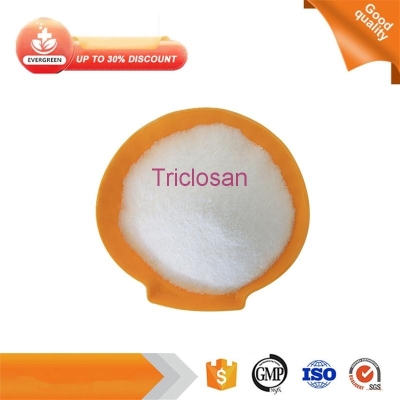-
Categories
-
Pharmaceutical Intermediates
-
Active Pharmaceutical Ingredients
-
Food Additives
- Industrial Coatings
- Agrochemicals
- Dyes and Pigments
- Surfactant
- Flavors and Fragrances
- Chemical Reagents
- Catalyst and Auxiliary
- Natural Products
- Inorganic Chemistry
-
Organic Chemistry
-
Biochemical Engineering
- Analytical Chemistry
- Cosmetic Ingredient
-
Pharmaceutical Intermediates
Promotion
ECHEMI Mall
Wholesale
Weekly Price
Exhibition
News
-
Trade Service
BMS recently announced that the evaluation of the anti-PD-1 therapy Opdivo (Odivo, generic name: nivolumab, Navulyu monoanti) combined chemotherapy for excision non-small cell lung cancer (NSCLC) patients with the new auxiliary treatment (preoperative treatment) phase 3 CheckMate-816 trial reached the main endpoint: in pathology complete remission (pCR) showed significant statistical improvement.
it is worth noting that CheckMate-816 was the first and only Phase 3 trial: it was shown that immuno-checkpoint inhibitor combination chemotherapy was beneficial as a new complementary treatment for non-metastasis NSCLC.
CheckMate-816 is a randomized, open-label, multi-center Phase 3 trial that is evaluating the efficacy of Opdivo combined chemotherapy and single-use chemotherapy as a new complementary treatment for patients with removable NSCLC.
In the main analysis, 358 patients were randomly divided into two groups, one group receiving Opdivo 360mg combined with histological platinum-based double chemotherapy (platinum-doublet chemotherapy, PDC), once every three weeks, up to three times, followed by surgery, and the other group receiving PDC, once every three weeks, up to three times, and then surgery.
the main endpoints of the trial were pathological complete remission (pCR) and event-free lifetime (EFS).
critical secondary endpoints include total lifetime (OS), primary pathological remission (MPR), death, or distant transfer time.
results showed that the study reached the primary endpoint of pCR: a higher proportion of patients who received Opdivo plus chemotherapy as a new complementary treatment before surgery showed no signs of cancer cells in surgically removed tissue than in the group of patients who received chemotherapy as a new auxiliary treatment before surgery.
the study, the safety of Opdivo combined chemotherapy was consistent with previously reported NSCLC studies.
these positive results mark the first time in a phase 3 trial of removable NSCLC that a combination therapy based on immuno-checkpoint inhibitors has a higher efficacy than chemotherapy as a new complementary treatment.
so far, Opdivo-based programs have shown benefits in four Phase 3 clinical trials for early-stage cancer, including lung cancer, bladder cancer, esophageal/gastroesophageal junction cancer, and melanoma.
BMS will complete a comprehensive assessment of existing CheckMate-816 data and work with investigators to present the results at an upcoming medical conference while discussing potential regulatory options with regulators.
CheckMate-816 trial is currently under way to assess the main endpoint of event-free lifetime (EFS) and the key secondary endpoint.
in non-metastasis NSCLC, BMS and its collaborators are exploring the application of immunotherapy in the new assisted, assisted and peri-surgical phases, as well as in combination with chemotherapy.
to date, Opdivo has shown better results in new complementary or complementary treatments for four types of cancer: lung, bladder, esophageal/gastroesophageal cancer and melanoma.
is the leading cause of cancer death worldwide.
types of lung cancer are non-small cell lung cancer (NSCLC) and small cell lung cancer (SCLC).
NSCLC is one of the most common types of lung cancer, accounting for 84% of lung cancer cases.
non-transferable cases account for the majority (approximately 60%) of NSCLC cases.
Although many patients with non-metastasis NSCLC are cured surgically, 30%-55% of non-metastasis NSCLC recurrences and deaths require preoperative (new assisted) and/or postoperative (assisted) treatment options to improve long-term prognostication.
.







